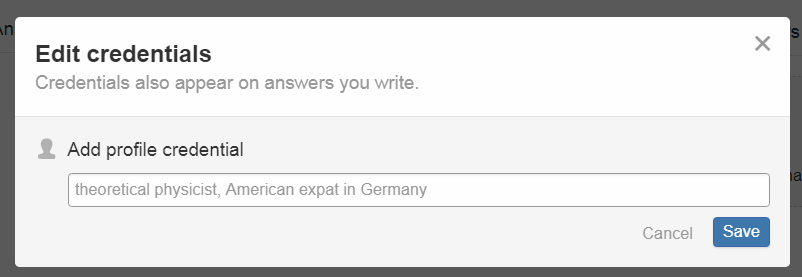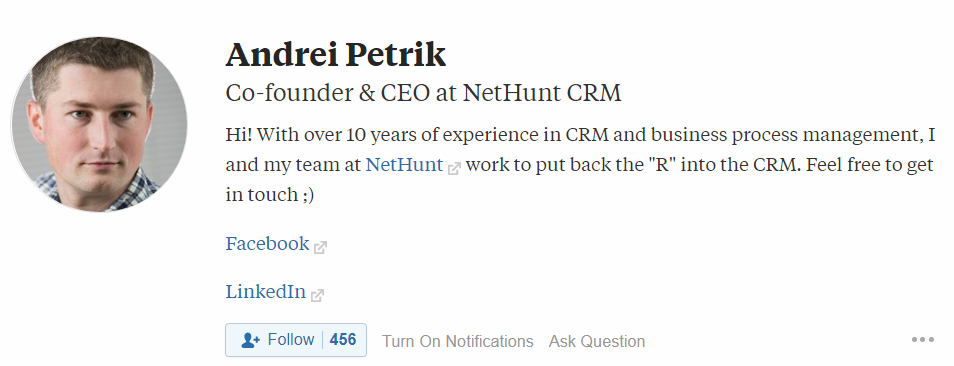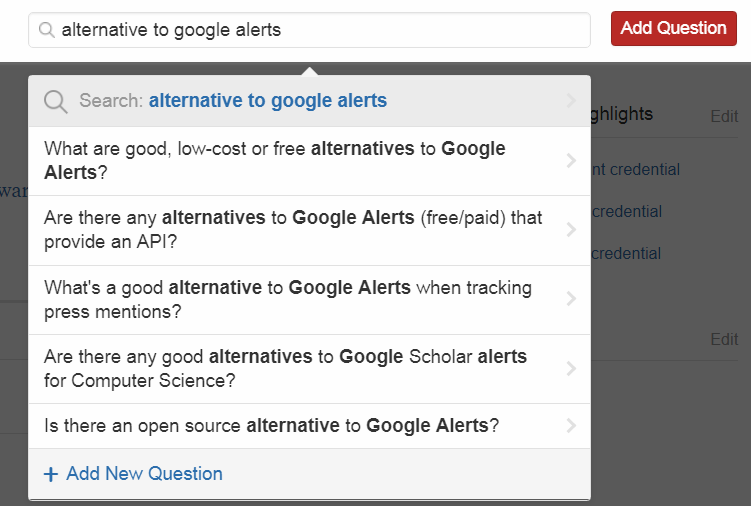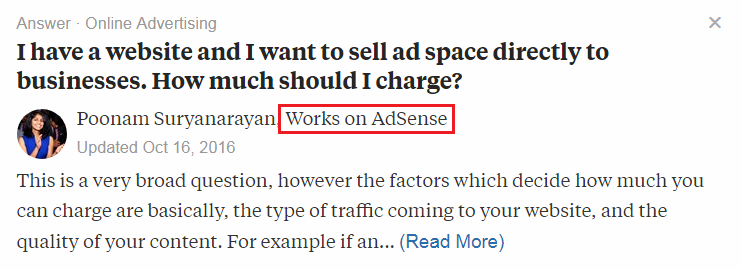Marketing on Quora 101: all you need to know

Quora is a community-fueled question-and-answer site. It's as straightforward as it gets: after registering a profile, anyone can ask a question and anyone can answer one. It's possible to go completely anonymous in both cases. Questions range from relationship advice to feminists of the Second World War and have everything in-between. Community votes on which answers are most helpful, making some threads visible to millions of users.
How can it be useful for us marketers?
Quora is a great place for a number of important things:
- Finding your target audience by finding popular questions on your topic
- Establishing your expertise and raising awareness of your (personal) brand by answering relevant questions
- Providing answers to anyone asking about your business, products, or services
- Raising traffic by linking to your relevant blog posts
- Learning from users, customers, and industry experts other than you
- Finding topics for creating and curating content
As you can see, there's plenty of ways to use Quora for marketing purposes. To be fair, I don't even remember writing such a long list for any other social media platform. So let's get to it: Quora is easy, but as with everything, there's a workflow involved.
1. Create your profile
Creating your profile allows you to add profile credentials, which can be almost anything.

Every time you'll be leaving an answer, that's what your readers will see.
You can also add your description, which can include a link to anything. The link will be no-follow, therefore pointless for the SEO purposes, but might be useful for customer acqusition. Aim to make your description short, professional and catchy. Think of it as branding.

You can also add links to your other social media profiles.
You'll also have an opportunity to change your credentials when answering a specific question. So you can mention your background in psychology when answering questions on psychology and your job as a marketer when answering marketing questions (yes, that's exactly what I do).
Quora will ask you what topics you know about, topics you're interested in, your employment, education, and location. Go ahead and answer all questions: the more complete your profile is, the better.
2. Find questions to answer
Now that you've claimed you're an expert and are willing to share your knowledge with the excited crowd of curious people, let's get to it.
- Look through the topics that you've liked and find the ones where you're expert in
- Look for relevant questions about your industry
- In the search bar, type your brand name - what if someone has already asked a question about your brand?
- Search for things like "<your competitor> alternative"
- Search for questions that ask about how to solve a problem that your product solves

Quora experts say that it's fine to be promotional when answering direct questions about your business, your competitors, etc. Theoretically, you could just do that and gain some relevant traffic from Quora. However, to get the most out of the site, answer questions unrelated to your product (but related to your experience and expertise). If your thoughts and ideas are useful, knowledgeable, interesting and so on, you'll start gaining followers who will get updates on your future activities. Your profile will also get more authority if users will upvote your answers. Your promotional posts, as beneficial as they might be, can't possibly achieve that.
To sum up, if you want short-term results, go for talking about your products on relevant pages. If you want long-term results, act as a regular Quora user.
People do it all the time.

Even President Obama answered questions during his presidency (although many thought he did it in an overly promotional way).

Another thing that is possible and might prove useful, is to link to your blog posts when answering relevant questions. These can be both about your product and about other topics, depending on the content you have.
3. Discover the advanced parts of Quora
While it is mostly a Q&A site, there are some advanced settings that you can make use of - or not, depending on how much time you really want to dedicate to Quora.
First, you can publish content on Quora, which is pretty much like having your own blog. If somehow you have a large amount of traffic already coming from Quora, that might be a good thing to do. Your readers won't have to go to the third party to see your content.
Second, you can create a page specifically for your business, the same way it's done on Facebook or Twitter. There are no outstanding benefits of doing that besides having another place for your brand ambassadors to share their positive experience and spread the word.
And finally, you can advertise on Quora. Here's how it works.
4. Use Quora for research
My favourite way to use Quora is for market research, getting ideas for new articles, discovering problems/questions users have, not regarding the product specifically, but regarding the industry.
There's also plenty of interesting information in the answers experts provide your target audience with. You will definitely learn something new, get ideas for product development, blog posts, customer service and marketing ideas. By typing your keyword into the search bar and getting questions that include this keyword, you will also find out in what ways people ask for a particular advice/solution. This can help in creating new headlines, FAQs, and so on.
5. Build following
While your following will build itself if the audience of Quora will enjoy your answers, there's more you can do to speed up the process, gain connections, and build your brand's and your own reputation. That is, of course, being an active member of the community. This means upvoting answers and questions (not randomly, but the once you truly liked). All of your history on Quora can be found on your profile: sometimes, even things that you've edited or deleted. All your activity regarding other users can be seen. If you're completely inactive, people might assume you're just there to promote your business - not help and educate, and no one likes that. Besides, when you're following people, they're more likely to follow you back.
6. Measure your success
Quora isn't a sales platform. It's much more about spreading awareness about your brand, building a reputation, and other marketing goals that work better in the long run. However, it's still necessary to know what's working best and what might be not working at all. Quora has its built in free analytics that will show you which content performs best - check it regularly. I'd also highly suggest checking your Google Analytics stats to see if you get traffic from Quora and whether it's growing.
Conclusion
Quora has 170 million monthly users (as of April 2017) of actively curious users. There are far fewer fake profiles, if any, and the audience is there to see what you have to offer. What are you still waiting for? Spend some quality marketing time on Quora and let me know how it goes in the comment section!













